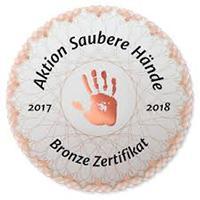About the disease
Exogenous allergic alveolitis is an inflammation of the lungs and airways, which affects the breathing of a person. It is most often caused by long-term inhalation of antigens in the dust. It can develop in people who live or work in adverse environmental conditions. If not treated timely, it can result in lung damage or pneumonitis. People who are continuously exposed to dairy and grain products, such as farmers and cheesemakers, are also in the risk group, as these products also contain antigens especially if a person is exposed to huge amounts of them. In some cases, exogenous allergic alveolitis develops in people with genetic predisposition, who caught the virus, containing antigens. Nonetheless, exogenous allergic alveolitis is a rare disease, affecting 30 out of 100, 000 people annually. people who previously suffered from pneumonitis are also in the risk group.
There are several types of exogenous allergic alveolitis: acute, subacute, and chronic. Acute form of this disease can begin manifesting itself several hours after a person was infected. It can also resolve within several days. Chronic exogenous allergic alveolitis develops more gradually and may be latent for a certain period of time. For a long time, the only symptom of chronic exogenous allergic alveolitis can be unexplained weight loss. Usually people notice the manifestations only when they have cyanosis, but even then it is possible to undergo treatment and have full recovery.
Symptoms
- Cough
- Chest pain
- Cyanosis
- Weight loss
- Fever
- Cold intolerance
Diagnosis
- Blood test is usually enough to determine if a person has infection, as it can detect certain antibodies typical for exogenous allergic alveolitis.
- CT scan and X-ray of the lungs are useful in determining the stage of this disease, its type and progression.
- Lung function test determines the ability of a person to breathe fully and evaluates the capacity of lungs to hold air.
Treatment
- Conservative treatment includes prescription of special antiallergic and anti-inflammatory drugs, which would fight infection. Antibiotics are also used to stop exogenous allergic alveolitis from spreading and to speed up the recovery time. The most crucial aspect of treatment is immediate quitting of exposure to antigens, which caused development of inflammatory process. In some cases, a person needs to change job or environment to avoid future complications.
Authors:
This article was edited by medical experts, board-certified doctors Dr. Nadezhda Ivanisova, and Dr. Bohdan Mykhalniuk. For the treatment of the conditions referred to in the article, you must consult a doctor; the information in the article is not intended for self-medication!
Our editorial policy, which details our commitment to accuracy and transparency, is available here. Click this link to review our policies.



















